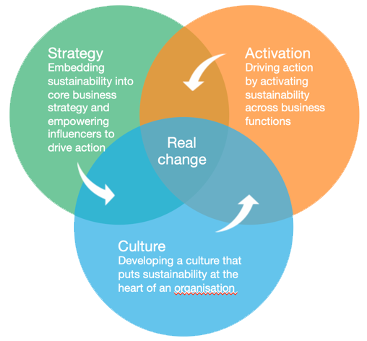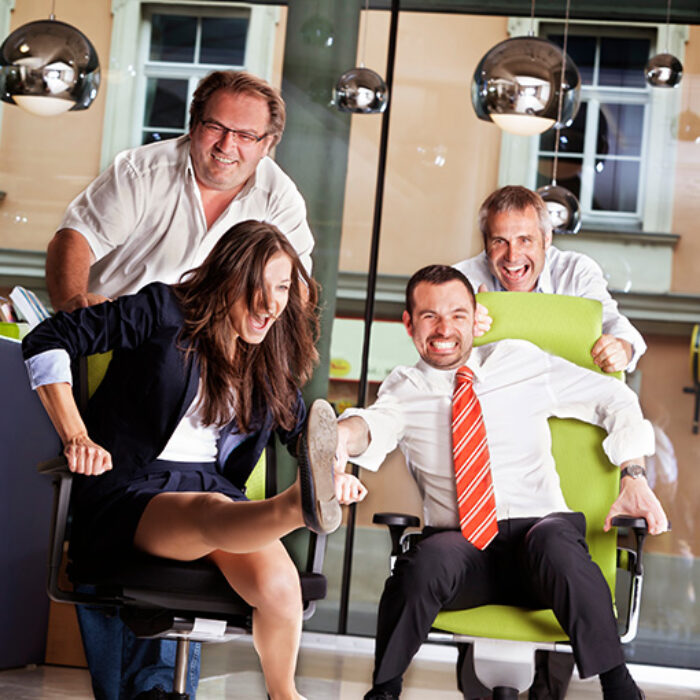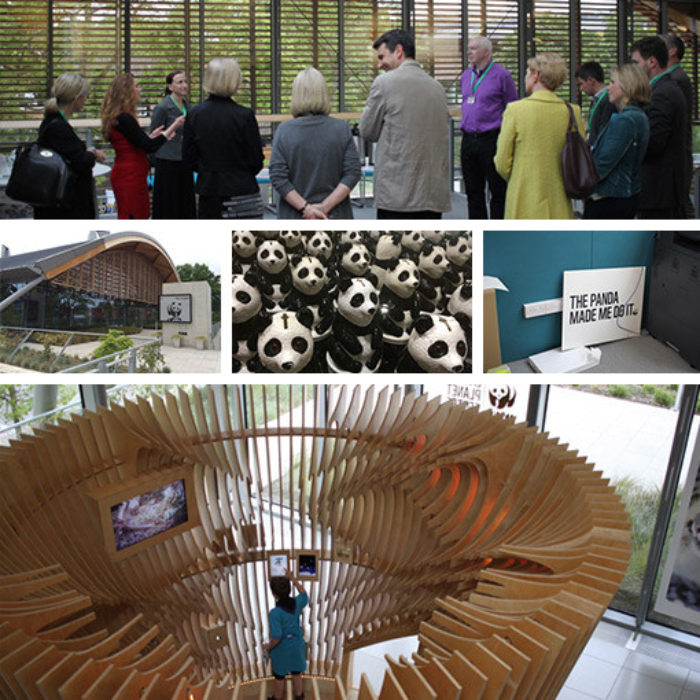Sustainability in a time of crisis
In late 2019 – in a world that might seem barely recognisable from today’s vantage point – we undertook a series of conversations with contacts and clients, all sustainability professionals, to understand more about their perspectives and priorities, and to help us update our own thinking.
Together we explored the increasingly complex and multifaceted challenge of being a sustainable organisation. And we discussed the urgent need to act, in light of the realities of the climate emergency, the challenge of resource availability, the rise of citizen activism around environmental issues, and widening divisions in many parts of society.
Systemic change
They were fascinating conversations, and what’s still as true today as then, is that becoming a more sustainable organisation is deeply rooted in the need for systemic change, especially around organisational culture. For many businesses this can mean a complete transformation of existing practices.
The four key themes that emerged from our discussions are the need to:
- Surpass sector norms, moving beyond doing a good job, to setting performance in the context of the wider world and its needs
- Realise that the window of opportunity is closing for action on both environmental and societal issues
- Refocus on organisational purpose to build longer-term value and trust
- Embrace a collaborative approach, recognising that partnership working, knowledge sharing and collaboration are crucial to successful action.

The big challenge is to close the gap between this understanding of what needs to be done, and how to implement practical, measurable action.
In our experience, real change only comes from an alignment of strategy, culture and activation, as shown in the diagram.
A different world
Of course, events in early 2020 have pushed a more immediate challenge for people and business into the global spotlight. And with populations under attack from Covid 19, and most businesses around the globe operating under some degree of lockdown, it’s entirely understandable that thoughts of longer-term organisational sustainability might be put on the back-burner.
Yet it’s also fair to acknowledge that despite the need to deal with the immediate crisis, all of the traditional sustainability challenges still apply to businesses today, tomorrow, and in the months and years ahead.
So perhaps there is room to reflect whether there are opportunities to learn from the shifts brought about by Coronavirus and the resultant lockdown…
The way ahead
Because alongside the shocking, tragic realities of the global Coronavirus pandemic, the world is seeing some glimmers of an alternative way forward. Through this collective experience we’re beginning to see that it’s possible to live and work differently.
Of course, we must resist the temptation to over-simplify, and there will be many for whom it’s hard to see positives, but it’s clear that there can be benefits to many of us, our communities and the environment:
- Many more of us are working productively from home, meaning that travel is vastly reduced, with millions less car miles driven and plane miles flown
- Restrictions on shopping trips and food availability means many of us are finding creative ways to make food go further
- More of us are embracing new fitness activities to maximise our permitted daily exercise opportunity
- There is a rebalancing of what we value in society as we reflect on our dependency on the roles of key workers
- There is an increasing awareness of the vulnerable in our communities, leading to more volunteering and an uplift in community spirit, which brings benefits for social cohesion.
Reflecting back on the themes from those 2019 conversations, it’s clear that our current situation makes them even more vividly relevant – we need to work together, for the longer-term, for the benefit of all.
Maintaining the change
This poses a, perhaps sensitive, question. In the coming months, when we emerge from the lockdown, can society and business hang onto what those small wins represent – an openness to doing things differently – and make them part of business as usual?
Clearly and understandably there will be a huge push to get the country back to normal. To get people back into the workplace, to make up for lost time and lost profit.
But while doing that, might we also consider our role as businesses to identify which elements of the pandemic response were a step in the right direction? Which aspects can we nurture and grow? And how can we use this new way of thinking to drive greater engagement and make real progress?
It’s a terrible time for us all, but perhaps there are already some small signs of future opportunities to make more permanent changes to society and business that will provide even bigger, and infinitely more welcome, impacts on our world.



